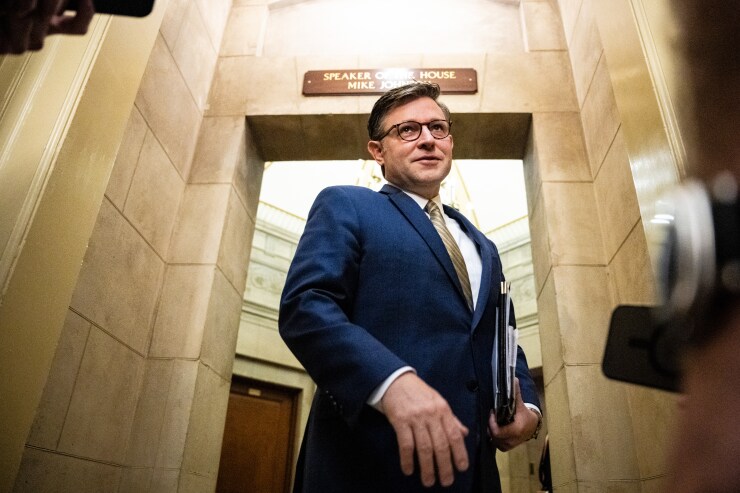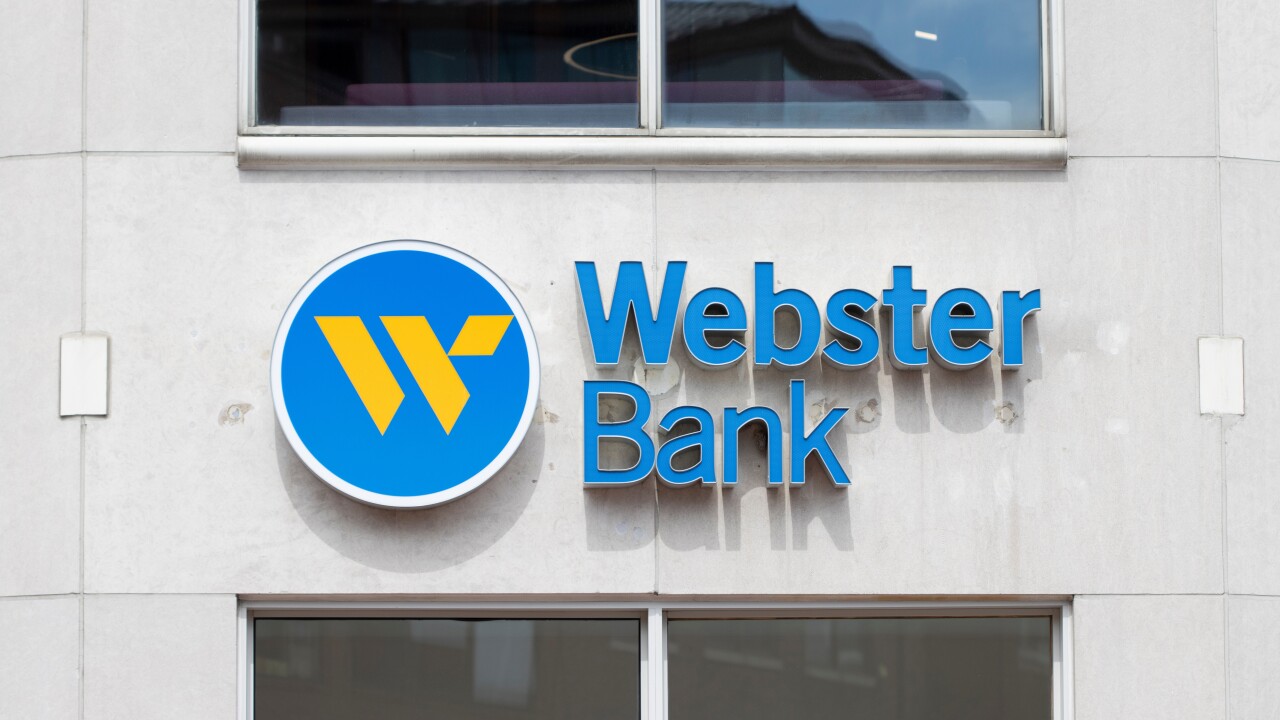
WASHINGTON — Interparty fighting once again waylaid Republicans' "crypto week" as party hardliners huddled in House Speaker Mike Johnson's office with House Financial Services Committee Chair French Hill, R-Ark., and the House Agriculture committee chair over how to advance the legislation.
A procedural vote on debating the legislation failed yesterday afternoon, and another one to reconsider has been stalled at 201-214 at the time that leaders met with Johnson. Freedom Caucus members who met with President Donald Trump last night are demanding that a bill to ban the formation of a Central Bank Digital Currency be attached to the market structure bill, a measure that Hill and other Republicans have worked for months to garner some Democratic buy-in.
The addition of the CBDC bill would risk killing any bipartisan support for market structure, which the bills would require given the narrow majority Republicans hold in both chambers of Congress. Hill and Agriculture Committee Chairman GT Thompson of Pennsylvania are arguing against the idea of the two bills being rolled into one, according to two people familiar with the meeting.
The possibility that the market structure bill might not pass represents a worst-case scenario for bankers.
Bank trade groups have
But if the market structure bill is combined with the CBDC bill, the chances of such a measure passing in the Senate — where Republicans hold 53 seats and will require 60 votes to invoke cloture and bring the bill to the floor for a vote — are slim. That puts lawmakers back at square one with the market structure bill, and the portions of that measure that bankers are most eager to change are not the ones that the Freedom Caucus is fighting.
Meanwhile, the stablecoin bill — with which the banking industry has significant qualms — would pass the House and become law once signed by Trump.
Bankers have offered criticism of the stablecoin and crypto market structure bills that won't be changed before the House votes on the legislation.
The stablecoin bill, named the GENIUS Act, doesn't explicitly prohibit nonbanks from having Federal Reserve Master Account access (the legislation says it will maintain the "status quo"), and doesn't close workarounds to a ban on stablecoins offering yield, which could allow stablecoins to more easily disintermediate the banking system, according to a
There are also issues with a provision that allows special purpose depository institutions to
The Independent Bankers Association of Texas said in a letter to the Texas congressional delegation that the provision "enables a dangerous regulatory arbitrage, inviting lightly regulated entities to 'charter shop' and operate nationwide under the most permissive regime."
"Texas' state-chartered banks operate under a robust and respected regulatory framework," the group said. "Weakening state authority and allowing under-regulated entities to compete in this space undermines both safety and consumer confidence."





